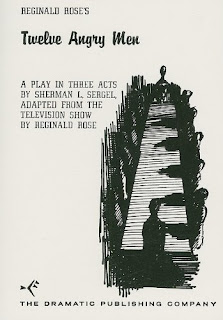8th Field Experience Blog, EGL 440 Samantha Summers

Fostering Student Independence
For many students, writing an essay is a daunting task. Anxieties over writing can greatly increase when students are expected to compose a full essay during a timed exam such as a Regents. I recently observed a tenth grade English class in which students were assigned a literary analysis paper about William Golding's Lord of the Flies. The students will be composing their papers during class in the computer lab when school resumes after Presidents' Week break. During the class period that I observed, the teacher walked students through the planning process in an organized manner. First, the teacher had students take out blank sheets of paper. Before jumping into the planning activity, the teacher informed the students that they would soon be pulling out central ideas and literary elements from the text in order to find a focus for their papers. She then asked a loaded, deeply-engaging question: "Why are we doing this? Why pull out central ideas and literary elements?"
The teacher's question was met with silent contemplation for a while, before hands began to fly up. Many students proposed the idea that literary elements help to develop central ideas. One student even provided an example from the text by suggesting that the literary element of symbolism develops the idea put forth by the text that individuals' morals and values are compromised when there is a lack of rules and regulations. The teacher's question seemed to lead the students to recognize the connection between central ideas and literary elements and to realize that authors utilize literary elements in order to portray certain messages that may serve as social commentary. After this discussion of the teacher's question, the students were given several minutes to independently write down as many central ideas from the text that they could come up with. The teacher then went around the room and asked each student to contribute one of their central ideas. These central ideas ranged from "fear is very controlling" to "humans destroy the beauty in nature." Once every student had spoken, the teacher delivered praise by stating that the students had come up with great central ideas but reminded them that they needed to have concrete evidence in order to make claims that Golding is trying to spread a message such as "fear is very controlling." Thus, the teacher prompted the students to draw a horizontal line across their sheets of paper in order to make another list. This time, students were given time to come up with literary elements utilized in the novel. Then, the teacher repeated the procedure of going around the room to collect contributions. Once everyone had contributed, the teacher stated that "characterization" is a literary element that everyone should keep in their "tool box" if they should ever be stumped by an essay question, such as on a Regents, and cannot think of a different element. The teacher reinforced that analysis of "characterization" works with most texts. Lastly, the teacher gave students time to choose one literary element and one central idea from their lists and to try to connect the two with supporting textual evidence. Before the period ended, the teacher reinforced the necessity of planning. She encouraged students to look at their lists over the break and to try to outline each body paragraph of their essay before they would start officially writing the week after break. She explained that adequate planning reduces the chances of running out of things to say while writing and, thus, having to start over.
What I really liked about this particular class observation was that the teacher was not simply dumping literary elements and central ideas onto the students. Instead, she prompted the students to actively think and produce their own points. Therefore, the teacher encouraged the students to adopt an increased sense of independence and authority regarding their writing. By having students generate their own ideas, teachers can reduce what is known as "writing apprehension" which refers to, "...a person's tendencies to approach or avoid situations perceived to potentially require writing accompanied by some amount of perceived evaluation" (Daly & Wilson 327). In the situation in which I observed, the teacher made planning an interactive process and gave students a choice in what they wanted to write about by having them generate brainstormed lists. Therefore, the teacher's approach to the planning process could have reduced writing apprehension by prompting students to take ownership of their writing as opposed to if she had directly told students what to write about. Positive writing experiences such as this one can have a beneficial effect on students when they take exams that involve writing as well.
Additionally, I would like to briefly discuss a handout that the same teacher gave to me, which she had given to the students to use while they had been reading Lord of the Flies. I will replicate the contents of the handout here:



Comments
Post a Comment